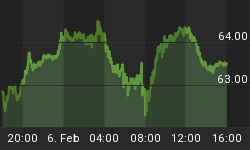Dear Professor Keen,
I am a monetary scientist and a fan of some of your work. I admire the courage it took for you to call the Australian housing crisis as early as you did, and to make a bet that you would be right. But I came across this video (http://www.youtube.com/watch?feature=player_embedded&v=aqY_DYtp60s#), wherein you say:
"...when a crisis hits, European governments will be forced into imposing austerity on countries that desperately need a stimulus."
With all due respect, Dr. Keen, isn't this the same thing as saying that, "when the delirium tremens hits, the medic will be forced into imposing sobriety on a patient who desperately needs a fifth of vodka?"
My analogy is imperfect in that the European Union is hardly a medic. They are the source of both the free vodka and the motivation to drink it to excess.
There are many problems with the European Union. From a fiscal perspective, one can simply look at the tragedy of the common greens. Every country's politicians have a perverse incentive to outspend the other countries (with which spending they buy the votes of their electorates). From a monetary perspective, they have the same flaw that the Federal Reserve has in the USA. The central bank holds assets to balance its liabilities. The assets are the bonds of the government, and the liabilities are the currency. But unlike in the USA, the euro is not backed by a single government's bonds but by the bonds of diverse and numerous member countries. It was a mechanism to (temporarily) prop up the lower credits of countries like Greece with the higher perceived credit of Germany, but ultimately to undermine the credit of Germany by forcing Germany to take on the liabilities of Greece. We shall see how it plays out, but there are no good outcomes that this economist can see.
The only true solution to the increasing frequency and magnitude of financial crises is to go to the root. In a system based on irredeemable paper money, there is no mechanism to extinguish debt. So debt is merely pushed around until the inevitable crisis. In addition, irredeemable paper money systems have two other intractable problems: unstable interest rates and unstable foreign exchange rates. In their desperate attempts to "hedge" these un-hedgable risks, the banking system creates endless derivatives, and derivatives of derivatives. And this leads to the other problem. Markets increasingly become the casinos for speculators. Speculators push interest rates and foreign exchange rates to even greater extremes. And with every fluctuation, real damage is done to the real businesses that produce the goods and services necessary to feed us and keep our economy alive.
We need a gold-based monetary system.
Sincerely,
Keith Weiner,
President of the Gold Standard Institute USA















